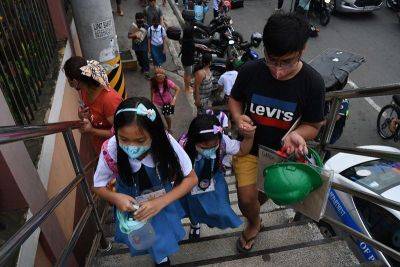Remittances still fueling spending
REMITTANCE growth has been slowing but the money being sent home by overseas Filipino workers (OFWs) continues to fuel domestic consumption, Hongkong and Shanghai Bank Corp. Ltd. (HSBC) said.
In a report on Friday, HSBC Global Research noted that with OFW deployment having declined since 2015, the resulting weaker remittance growth could lead to possible adverse impacts on the economy.
«Should we be concerned?,» HSBC economist Aris Dacanay wrote.
«Well, it depends. Remittances, perhaps, may have lost their 'mojo' when it comes to supporting the peso, but they haven't when it comes to fueling consumption.»
Dacanay said that OFWs were likely returning to the Philippines given the country's solid economic growth, particularly skilled workers lured by opportunities in the services and infrastructure sector.
With fewer migrant workers sending money back home, remittances have subsequently become less supportive of the current account.
«If OFW numbers continue to decline as economic growth progresses, we can expect some pressure on the current account balance,» Dacanay said.
«However, as ironic as it may sound, it is a different story for consumption,» he continued.
«Despite being less in US dollars, remittances continue to fuel household consumption in the Philippines,» particularly in 2022 and this year with the peso having fallen against the dollar.
While remittance growth may be slowing in dollar terms, it is accelerating in peso terms and thus remittances as a percentage of the economy «never showed any significant deterioration since 2015 and remained unwavering at 8 percent of GDP (gross domestic product).»
Consumption, Dacanay said, will continue to hold up even if the dollar weakens, with OFWs sending more money back home.
«Though there may not be as much ammunition as before, the growth in wages or even just the sheer generosity of OFWs should continue to support the power of remittances in fuelling domestic consumption,» he added.
«There is no question that remittances continue to provide resilience to the Philippine economy. However, on a macroeconomic scale, the structural aspects of remittances have changed: remittances now provide less dollars but roughly the







